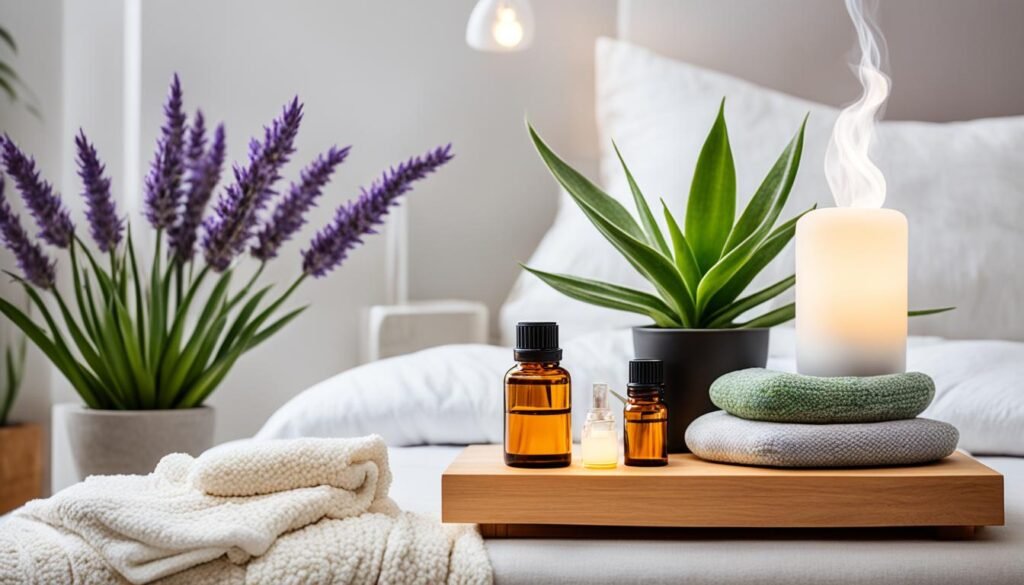More than 60 million Americans suffer from poor sleep quality, and disturbed sleep can negatively affect emotional and physical health, including memory, concentration, mood, and increasing the risk of depression, obesity, type 2 diabetes, heart disease, and high blood pressure. However, there are easy, natural fixes that can improve sleep quality, such as adjusting sleeping habits, consuming certain natural sleep aids, and utilizing natural remedies for better sleep. This article will explore various proven tips for better sleep and lifestyle changes that can lead to better sleep.
Introduction
More than 60 million Americans suffer from poor sleep quality, which is more than just an inconvenience and can negatively affect emotional and physical health. Disturbed sleep can have a detrimental impact on memory, concentration, and mood, and it can also increase the risk of depression, obesity, type 2 diabetes, heart disease, and high blood pressure. Prioritizing quality sleep is essential for overall well-being.
Statistics on Poor Sleep Quality
According to the Centers for Disease Control and Prevention (CDC), insufficient sleep is a public health epidemic, with over 35% of American adults reporting less than the recommended 7 hours of sleep per night. Additionally, the National Sleep Foundation reports that up to 30% of the general population experiences insomnia. These sleep quality statistics highlight the prevalence of sleep-related issues and the urgent need to address them.
Importance of Quality Sleep
Adequate, quality sleep is essential for physical and mental health. Research has shown that poor sleep can lead to a range of health problems, including increased risk of chronic conditions such as heart disease, stroke, type 2 diabetes, and depression. Additionally, lack of sleep can impair cognitive function, negatively affecting memory, concentration, and decision-making. Prioritizing sleep hygiene and addressing sleep-related issues is crucial for maintaining overall well-being and reducing the risk of these adverse health outcomes.
Warm Beverages for Better Sleep
Certain warm beverages can be beneficial for promoting better sleep. From warm milk rich in tryptophan to soothing chamomile tea and rejuvenating tart cherry juice, these natural sleep-promoting drinks offer a gentle, non-pharmaceutical approach to improving sleep quality.
Warm Milk and Tryptophan
A classic bedtime remedy, warm milk contains tryptophan, a chemical building block for serotonin. Serotonin plays a crucial role in the sleep-wake transition, making warm milk a comforting and potentially sleep-inducing beverage. The warmth of the milk may also have a calming effect, further aiding in the transition to restful slumber.
Chamomile Tea and Flavonoids
Chamomile tea is believed to possess flavonoids that may interact with benzodiazepine receptors in the brain, which are involved in the sleep-wake cycle. While the scientific evidence is limited, many individuals report experiencing a soothing and relaxing effect from drinking chamomile tea, particularly before bedtime.
Tart Cherry Juice and Melatonin
Tart cherry juice is a natural source of melatonin, the hormone that regulates the sleep-wake cycle. Consuming tart cherry juice may help support healthy melatonin production, potentially leading to improved sleep quality and duration. Although the research on the efficacy of tart cherry juice for sleep is still ongoing, it remains a popular natural sleep-promoting option.

Exercise for Better Sleep
Physical activity, particularly moderate aerobic exercise, can play a significant role in improving sleep quality. Researchers believe that engaging in aerobic exercise can boost the amount of slow-wave (deep) sleep, which is crucial for restorative and rejuvenating rest.
Benefits of Moderate Aerobic Exercise
Moderate aerobic exercise, such as brisk walking, cycling, or swimming, has been shown to have a positive impact on sleep. By elevating the heart rate and increasing blood flow, these activities can help the body transition into a more relaxed state, leading to better sleep. Regular physical activity can also reduce stress and anxiety, which are common contributors to sleep disturbances.
Timing of Exercise for Optimal Sleep
While exercise can be beneficial for sleep, the timing of the physical activity is crucial. Exercise can release endorphins and stimulate the body, which can make it challenging to fall asleep if done too close to bedtime. It’s recommended to avoid exercising within two hours of bedtime, as the spike in core body temperature can signal the body that it’s time to get up and active, rather than wind down for sleep.
By incorporating moderate aerobic exercise into your daily routine and timing it appropriately, you can harness the powerful sleep-enhancing benefits of physical activity and improve your overall sleep quality.
Melatonin Supplements
Melatonin is a hormone naturally released in the brain that regulates the sleep-wake cycle. However, exposure to artificial light at night can disrupt melatonin production, making it difficult to fall asleep. Melatonin supplements can help address this issue, but it’s important to choose a reliable brand, as melatonin supplements are unregulated by the FDA, and the per-pill dosages and ingredients may vary from manufacturer to manufacturer.
Melatonin and Sleep-Wake Cycle
The body’s natural melatonin production plays a crucial role in the sleep-wake cycle. Melatonin levels naturally rise in the evening, signaling to the body that it’s time to sleep, and then decline in the morning, indicating it’s time to wake up. Supplementing with melatonin can help support this natural rhythm and promote better sleep quality.
Choosing a Reliable Melatonin Brand
When selecting a melatonin supplement, it’s important to choose a reputable brand. Since melatonin supplements are not regulated by the FDA, the actual amount of melatonin in each pill can vary significantly from what’s listed on the label. Consistent use of the same melatonin brand is recommended to ensure you’re getting a consistent dosage and quality product.
Optimal Sleep Environment
Creating an optimal sleep environment can significantly improve sleep quality. Two key factors to consider are the ideal room temperature and minimizing light exposure.
Ideal Room Temperature
The ideal room temperature for sleep is between 65 and 72 degrees Fahrenheit. Cooler temperatures can help the body prepare for sleep by lowering core body temperature, which is a natural signal for the body to wind down and enter a restful state. Maintaining a comfortable, cool environment can facilitate a deeper, more restorative sleep.
Minimizing Light Exposure
Exposure to light, especially the blue light emitted by electronic devices, can disrupt the body’s natural sleep-wake cycle by suppressing melatonin production. To create a sleep-friendly bedroom, it’s important to minimize light exposure, especially in the hours leading up to bedtime. This includes turning off or dimming lights, closing curtains or blinds, and avoiding the use of smartphones, tablets, or computers close to bedtime.
By optimizing the room temperature and minimizing light exposure, you can create a sleep-friendly environment that supports the body’s natural sleep-wake rhythms, leading to better quality sleep and improved overall well-being.
Other Natural Sleep Aids
In addition to warm beverages and exercise, other natural remedies can also help improve sleep quality. One such option is valerian root, a commonly used herbal supplement that may have a calming, sedative effect, though the research on its efficacy is mixed. Magnesium, a mineral involved in regulating melatonin production and muscle relaxation, can also aid sleep. Additionally, lavender aromatherapy has been shown to have a soothing effect and may help improve sleep quality, particularly in individuals with sleep disturbances.
Valerian Root for Sleep Quality
Valerian root, a herb native to Europe and Asia, has long been used as a natural remedy for insomnia and other sleep-related issues. While the scientific evidence on its effectiveness is somewhat limited, some studies suggest that valerian root may have a mild sedative effect, potentially helping individuals fall asleep more easily and experience improved sleep quality.
Magnesium and Relaxation
Magnesium is a mineral that plays a crucial role in regulating the body’s sleep-wake cycle. It is involved in the production of melatonin, a hormone that helps control our circadian rhythms, and it also contributes to muscle relaxation, which can aid in the transition to sleep. Incorporating magnesium-rich foods, such as spinach, pumpkin seeds, and dark chocolate, or taking a magnesium supplement, may be beneficial for those seeking to improve their sleep.
Lavender Aromatherapy
Lavender, a fragrant herb known for its calming properties, has been studied for its potential to enhance sleep quality. Inhaling the aroma of lavender essential oil or using it in a diffuser may have a soothing effect on the mind and body, potentially helping to reduce stress and anxiety, which can interfere with sleep. Some research suggests that lavender aromatherapy may be particularly helpful for individuals with sleep disturbances, such as insomnia.

Toxic things to remove from your life
Achieving better sleep and overall well-being requires not only incorporating natural remedies but also addressing and removing toxic elements from your life. These toxic factors can include negative self-talk, unhealthy relationships, and harmful habits that can negatively impact your sleep and overall well-being.
Negative Self-Talk
Negative self-talk can contribute to anxiety and stress, which can disrupt your sleep and overall mood. It’s important to be mindful of your inner dialogue and replace these harmful thoughts with more positive, encouraging ones. Overcoming negative self-talk can lead to a more balanced and fulfilling life.
Unhealthy Relationships
Toxic or unhealthy relationships can also have a detrimental impact on your sleep and emotional well-being. Identifying and distancing yourself from relationships that are draining, unsupportive, or manipulative can create a more positive and harmonious environment, improving your overall quality of life.
Harmful Habits
Harmful habits, such as substance abuse, can disrupt your sleep and foster an unhealthy environment. Recognizing and addressing these habits is crucial for achieving better sleep and a more balanced, fulfilling life. By purging negativity and eliminating toxic elements, you can create a healthier, more stable foundation for your overall well-being.
Safety and Precautions
While natural remedies can be beneficial for improving sleep, it’s crucial to exercise caution and consult with healthcare professionals, particularly for those with underlying medical conditions or who are taking medications. Some natural sleep aids, such as melatonin and valerian root, may have potential side effects or interact with certain drugs.
Consulting with Healthcare Professionals
It’s essential to discuss the use of any natural sleep remedies with a healthcare provider to ensure safety and effectiveness. They can provide guidance on the appropriate dosage, potential interactions, and monitor any side effects. This is especially important for individuals with chronic health conditions or those taking prescription medications.
Potential Side Effects and Interactions
It’s important to be aware of the potential side effects and interactions associated with natural sleep aids. For example, melatonin may cause drowsiness, dizziness, or headaches, while valerian root may interact with medications like antidepressants and blood thinners. By consulting with a healthcare professional and being mindful of potential side effects and interactions, individuals can safely incorporate natural remedies into their sleep routine.


